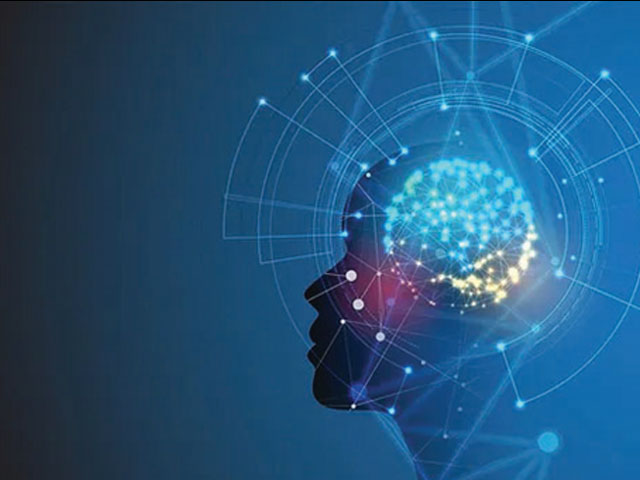Mrs.Devi Venugopal

Educational Psychologist, Indonesia
In flow with Marshall Goldsmith, Triggers book discussion about Why it is so hard to change adult behavior. We will look into the 15 Belief Triggers which are the backbone of our resistance towards change.
- IF I UNDERSTAND, I WILL DO.
The whole process of understanding these Belief Triggers, is to understand the gap between the ideal self and the real self, however it does not mean that you will reduce the gap.
Most of us will think, I know all of this, but I bet you would not be doing all of that you know. Do you agree there is a difference between understanding and doing. Just because people understand what to do, they will not do it. This belief that if I understand I will do it, triggers CONFUSION. It also applies to the following fourteen belief triggers; you may think they don’t apply to you. This is a belief worth questioning too.
- I HAVE WILLPOWER AND WON’T GIVE IN TO TEMPTATION.
We oversell willpower and self-control and shame it’s absence. We also label people who achieve through remarkable willpower as “STRONG” and “HEROIC” and the people who need help or structure as “WEAK”. This is insane as only very few of us can gauge or predict our willpower. We not only overestimate it, but we alsounderestimate the power of triggers in our environment. Our environment is a magnificent WILLPOWER-REDUCTION MACHINE. Very few of us foresee the challenges we will face, as a result, the willpower we assume when we set a goal rarely measures up to the willpower, we display in achieving that goal. This belief triggers OVERCONFIDENCE.
- TODAY IS A SPECIAL DAY
When we decide to give an excuse, any day can be a “special day”. We yield to impulse and short-term gratification because it is the World Cup, or my birthday, or our anniversary, or my day off. Tomorrow is back to normal, we will be our usual self-disciplined self then. Excusing our impulsive lapses as an outlier event triggers a self-indulgent INCONSISTENCY which is the enemy for change. Successful change doesn’t happen overnight. We’re playing a long game, not the short game of instant gratification that our special day provides.
- “ATLEAST I’M BETTER THAN…”.
In a down moment of failure or loss, we tell a narrative to ourselves, “At least I’m better than…..” We give permission to ourselves to get a free pass because we’re not the worst in the world. This is our excuse to take it easy, lowering the bar on our motivation and dicipline. Other people have a long way to go than us. This belief triggers a false sense of IMMUNITY.
- I SHOULDN’T NEED HELP AND STRUCTURE
One of our most dysfunctional belief is our contempt for simplicity and structure. We feel shame when we ask for help, we believe we are above the need of structure. Somewhere we believe that complexity is worthy of our attention, our contempt for instruction and follow-up, and our faith that we can succeed by ourselves. In combination of the above three points, this belief triggers EXCEPTIONALISM in us.
When we presume that we are better than people who need structure and guidance, we lack one of the most crucial ingredients for change: HUMILITY.
- I WON’T GET TIRED AND MY ENTHUSIASM WILL NOT FADE.
When we plan a long day of work we are not exhausted, but at the end of the day after the hard work, we feel depleted of energy. We seldom recognize that self-control is a limited resource. As we become tired our self-control becomes waver and may eventually disappear. This sheer effort of sticking with the plan triggers DEPLETION.
- I HAVE ALL THE TIME IN THE WORLD.
Here are two opposing beliefs we hold in our minds and mash into one warped view of time: 1) We always underestimate the time to get the things done, 2) We believe that time is open-ended and sufficiently spacious for us to get to all our self-improvement goals eventually. This faith in time’s infinite patience triggers PROCRASTINATION. We will start getting better tomorrow. There’s no urgency to do it today.
- I WON’T GET DISTRACTED AND NOTHING UNEXPECTED WILL OCCUR.
When we make plans for our future we seldom plan on distractions. We plan as if we are living in aperfect world and be left alone to focus on our work. Although this state of being left alone has never happened in the past, we plan as if this nirvana-like world will surely exist in the future. We get to work without accommodating the fact that life always intrudes to alter our priorities and test our focus. We need to plan for the high probability of low probability events. For example, when I sat to write the article one Sunday, the odds of kids getting stuck in some homework, can turn the tables completely.
- AN EPIPHANY WILL SUDDENLY CHANGE MY LIFE.
An epiphany implies that change can arise out of a sudden burst of insight and willpower. It happens, of course. A gambler goes broke. A nasty executive is threatened with dismissal, an alcoholic hits rock bottom. And, for a while each of them sees the light. But often, an epiphany experience triggers MAGICAL THINKING. The ‘‘instant transformation experience” might produce change in the short run, but nothing meaningful or lasting. The process is based on impulse and wishes rather than strategy and structure.
- MY CHANGE WILL BE PERMANENT AND I WILL NEVER HAVE TO WORRY AGAIN.
The great western disease is “I’ll be happy when….” This belief that happiness is a static and finite goal, within our grasp when we get the promotion, or buy a hose, or find love or marry someone, or whatever. We set some goal and mistakenly believe that in achieving that goal we will be happy, and we will never regress. This belief triggers a false sense of PERMANANCE. It is the difference between, say, getting in shape and staying in shape – hitting our physical conditioning goals and maintaining them. Even when we get there, we can’t stay there without commitment and discipline. We have to keep going to gym like forever.
- MY ELIMINATION OF OLD PROBLMES WILL NOT BRING ON NEW PROBLEMS.
Even if we appreciate that no change will provide a permanent solution to our problems, we forget that as the old problem exit the gate, the new problem will enter. The old problem of not having a job will be replaced by how to keep the job.
This belief triggers a fundamental misunderstanding of our FUTURE CHALLENGES.
(to be continued….)






